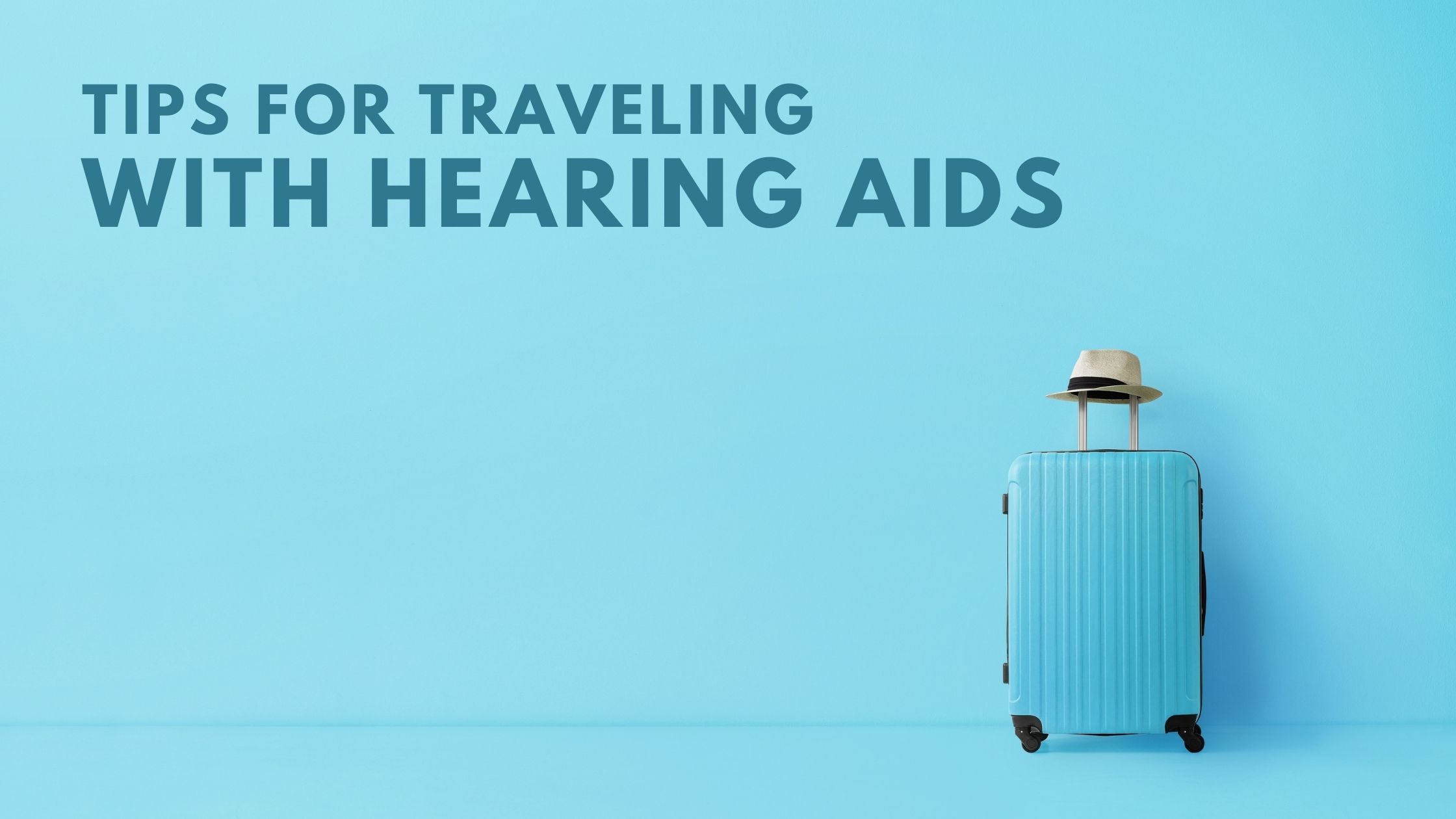As the world slowly gets back to normal, we’re looking forward to traveling more. Covid-19 travel restrictions are starting to lift, and many Americans are thinking about booking flights.
Traveling with hearing aids may seem complicated, but it doesn’t have to be. Whether you’re traveling to another state or booking a holiday in another country, these tips for traveling with hearing aids will make it easy.
Plan Ahead
Planning is an important part of traveling whether you have hearing loss or not. Taking some time to prepare in advance can save you a lot of worry later on. If you’re traveling with hearing aids, here are a few things you can plan ahead:
- Make a travel itinerary so you won’t run into any last-minute issues.
- Book all hotels and transportation ahead of time.
- If you need any accommodations in your hotel room, contact them ahead of time. For example, you can request a room that has flashing lights for the doorbell or the phone.
- Schedule a hearing aid check-up before you leave. Getting your hearing aids cleaned and serviced before you leave can avoid any unpleasant surprises while you’re on your trip.
- Download your airline’s app so you can get up-to-date notices about any changes to your flight.
Make a Packing List
Do you procrastinate on packing, and throw things into a bag just before rushing off to the airport? We recommend making a packing list so you don’t forget any essentials. If you have hearing loss, making sure you have everything you need to hear will lead to a relaxing and stress-free holiday:
- Pack extra batteries. Take more than you think you need in case any batteries get damaged or misplaced.
- If you have rechargeable hearing aids, pack your charger!
- Find out if you’ll need an adaptor at your destination, and pack that too.
- Bring cleaning supplies so you can clean your devices every day. If you’re traveling somewhere humid, it’s especially important to make sure your devices stay clean and dry.
- Ear protection. Are you heading to a noisy destination? Or maybe you bought concert tickets to see live music. When you’re in a loud environment, you can turn down the volume on your hearing aids, or even take them out. If it’s very loud, put in ear protection.
Pack all your hearing aid supplies in your carry-on luggage. Your hearing aids and all your hearing aid supplies are allowed on the plane. This will prevent any damage during transit, and you’ll have everything you need in case your luggage gets lost.
Turn Off Smartphone Data
If you have Bluetooth-enabled hearing aids that connect to your phone, make sure you switch off your smartphone data before takeoff. If you use data abroad, you’ll get a huge cell phone bill with roaming charges. If you want to send and receive texts while on holiday, check your phone plan so you know what’s included, or consider buying a holiday upgrade.
You can still use all your hearing aid connectivity features. Bluetooth doesn’t use data, so you can still enjoy all the features you love.
Carry a Map
Having a map on hand can make it much easier to communicate. If you need to ask for directions, pull out your map and ask someone to point you in the right direction. Having it all on paper makes it easier to find your way, and you won’t strain to hear or struggle to remember if they said to turn left or turn right.
Ask for Help
Airline attendants, hotel staff, tour guides, museum staff, and other professionals are usually very accommodating. After all, it’s their job. If you ask for help they’re happy to help in any way they can. Don’t be shy, but ask for help when you need it.
Check Your Hearing Before You Go
Have you noticed changes in your hearing? Maybe wearing a face mask has been making it much harder to hear. Before heading off on your next adventure, book a hearing test. This is the perfect time to make sure your hearing aids are still right for you. We can recalibrate your devices to match your hearing needs or recommend hearing aids that will help you hear on your next trip.

